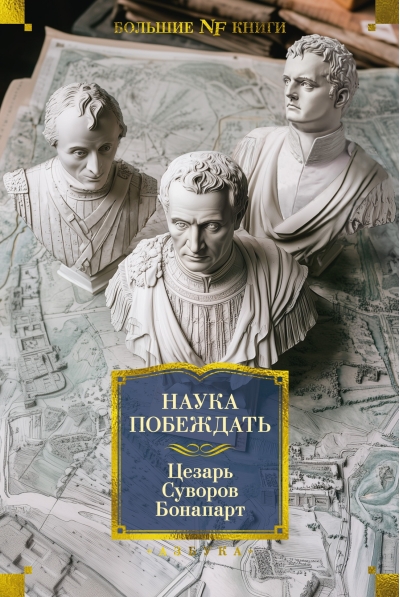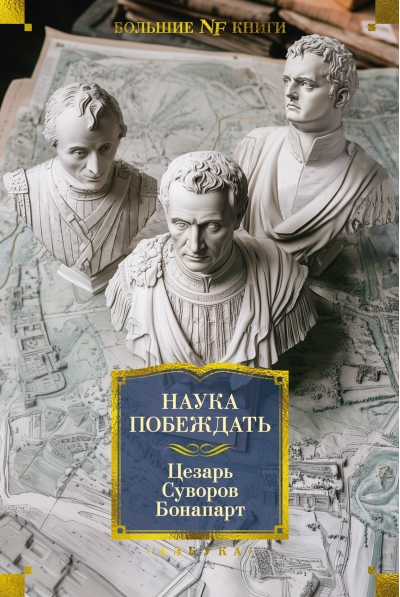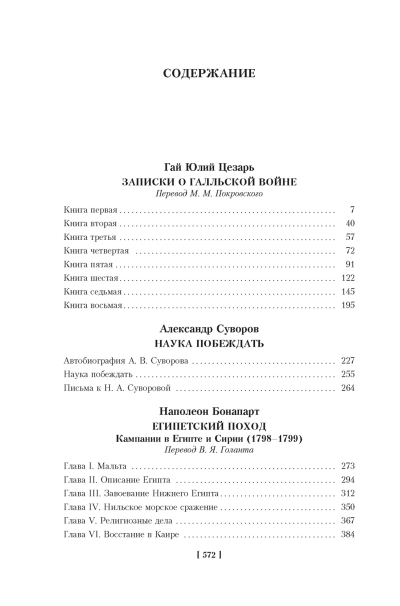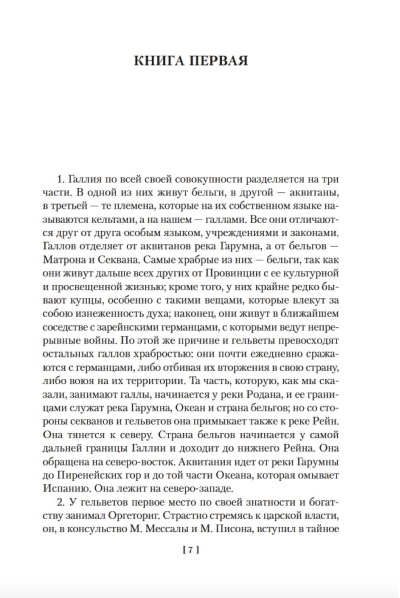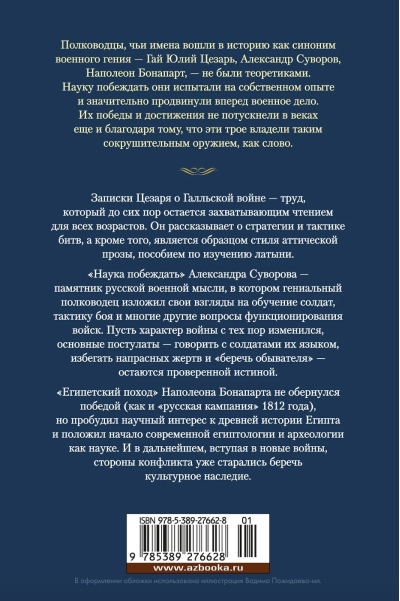The Science of Winning. Collection
14.99 €
In stock
The commanders whose names have gone down in history as synonyms of military genius — Gaius Julius Caesar, Alexander Suvorov, Napoleon Bonaparte — were not theoreticians. They experienced the science of winning first-hand and significantly advanced military affairs. Their victories and achievements have not faded over the centuries, also due to the fact that these three wielded such a devastating weapon as the word.
Caesar's Notes on the Gallic War is a work that remains fascinating reading for all ages. It tells about the strategy and tactics of battles, and is also an example of the Attic prose style, a manual for studying Latin.
"The Science of Winning" by Alexander Suvorov is a monument to Russian military thought, in which the brilliant commander outlined his views on the training of soldiers, battle tactics and many other issues of the functioning of troops. Although the nature of war has changed since then, the basic tenets - to speak to soldiers in their language, to avoid unnecessary sacrifices and to "take care of the common man" - remain a proven truth.
Napoleon Bonaparte's "Egyptian campaign" did not result in victory (as did the "Russian campaign" of 1812), but it awakened scientific interest in the ancient history of Egypt and laid the foundation for modern Egyptology and archeology as a science. And later, when entering new wars, the parties to the conflict tried to protect the cultural heritage.
Caesar's Notes on the Gallic War is a work that remains fascinating reading for all ages. It tells about the strategy and tactics of battles, and is also an example of the Attic prose style, a manual for studying Latin.
"The Science of Winning" by Alexander Suvorov is a monument to Russian military thought, in which the brilliant commander outlined his views on the training of soldiers, battle tactics and many other issues of the functioning of troops. Although the nature of war has changed since then, the basic tenets - to speak to soldiers in their language, to avoid unnecessary sacrifices and to "take care of the common man" - remain a proven truth.
Napoleon Bonaparte's "Egyptian campaign" did not result in victory (as did the "Russian campaign" of 1812), but it awakened scientific interest in the ancient history of Egypt and laid the foundation for modern Egyptology and archeology as a science. And later, when entering new wars, the parties to the conflict tried to protect the cultural heritage.
See also:
- All books by the publisher
- All books by the author
- All books in the series Non-Fiction. Big Books


